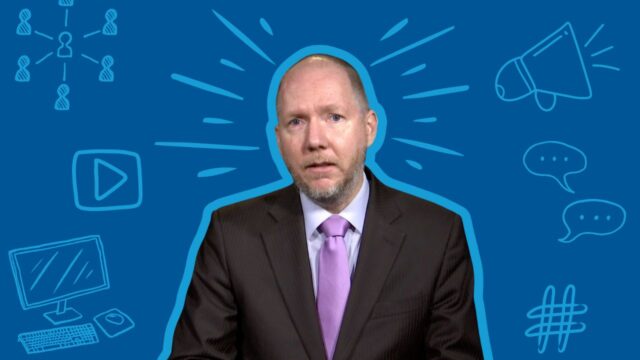
What Is Disinformation?
View in
Disinformation is false information purposely spread to influence public opinion or obscure the truth. This information is often spread through social media and can cause people to mistrust reliable sources.
Disinformation is a growing issue in our globally connected society. Foreign Service Officer Chris Smith explains what disinformation is and how it is addressed at the State Department.
Discussion Questions
Use the following discussion questions to guide your classroom conversations about this video. Refer to the timestamps to find the answers to these questions.
- What is disinformation, and why is it used by adversaries?
- What are some examples of how we counter disinformation spread by adversaries?
- Where are disinformation narratives, and how are they formed?
- Why is refuting a lie a less successful counter-disinformation practice?
- Explain two successful counter-disinformation practices the State Department uses.
- In what ways are having long-standing diplomats overseas beneficial for countering disinformation?
- Explain your thinking about this quote from the video, ”So much we do in our lives is all based on our understanding of the world. If an adversary can shape that [understanding of the world]… that can have a huge impact.” What impacts might adversaries have on the general public of a country?
- What is one thing you learned from the video that you found interesting, surprising, or confusing?
- What is one question you would ask the speaker in this video?
- Summarize what you learned about disinformation practices.
Video Vocabulary
The following terms are referenced in this video.
- Disinformation – False information purposely spread to influence public opinion or obscure the truth.
- Counter-disinformation – Actions that deal with reducing the impact of disinformation.
- Bias – Supporting or opposing someone or something in an unfair way.
- Adversary – An enemy or opponent.
- Strategy – A careful plan or method.
- Narrative – A story of a situation or series of events that reflects and promotes a particular point of view.
- Diplomat – A person who is skilled at working with people from other countries while representing their own country’s interests.
- Refutation – The act of proving something or someone wrong.
- Pre-bunking – To warn in advance about false information.
- Non-government organizations – An organization independent of the government.
AP and IB Course Connections
Use this video in your Advanced Placement and International Baccalaureate classes. Below are prompts for each course.
AP Comparative Government
Suggested Course Units: Unit 1: Political Systems, Regimes, and Governments, Unit 3: Political Culture and Participation, Unit 5: Political and Economic Changes and Development
Question Type: Comparative Analysis
Prompt: Compare how disinformation policies and practices can be impacted by the type of government in two different AP Comparative Government and Politics course countries. In your response, you should do the following.
(A) Define disinformation.
(B) Explain how addressing disinformation is done by two different AP Comparative Government and Politics course countries.
(C) Explain why each of the two AP Comparative Government and Politics course countries described in (B) would choose to approach disinformation differently.
IB Global Politics
Paper Type: Paper 1: Stimulus-based paper on a topic from one of the four core units.
Prompt: According to the video and examples you have studied, discuss the strengths and limitations of two practices nations take to address disinformation.